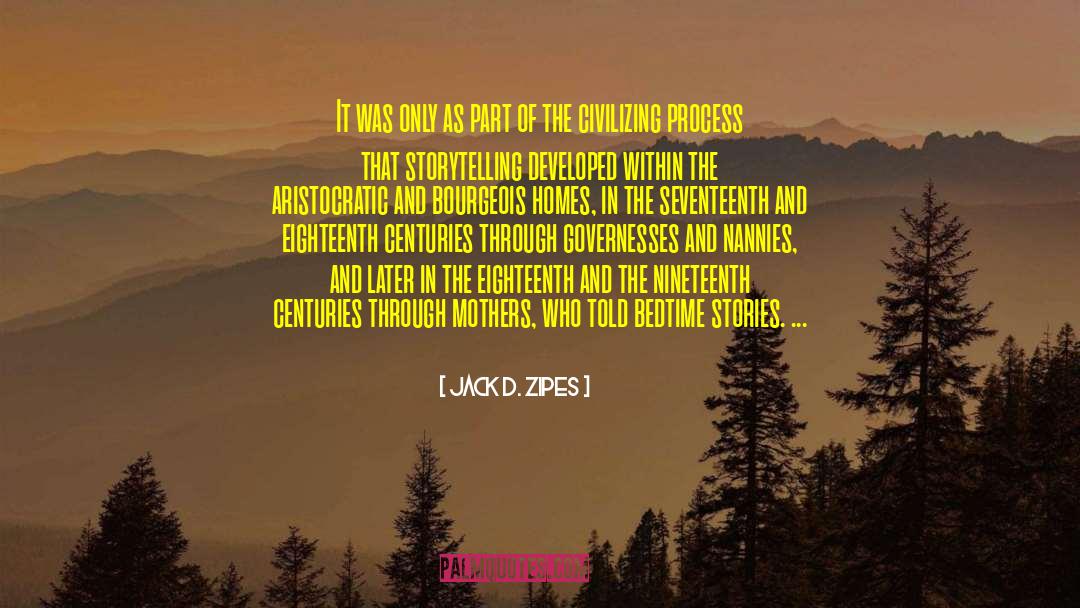Jack D. Zipes Famous Quotes
Reading Jack D. Zipes quotes, download and share images of famous quotes by Jack D. Zipes. Righ click to see or save pictures of Jack D. Zipes quotes that you can use as your wallpaper for free.
Fairy tales begin with conflict because we all begin our lives with conflict. We are all misfit for the world, and somehow we must fit in, fit in with other people, and thus we must invent or find the means through communication to satisfy as well as resolve conflicting desires and instincts.
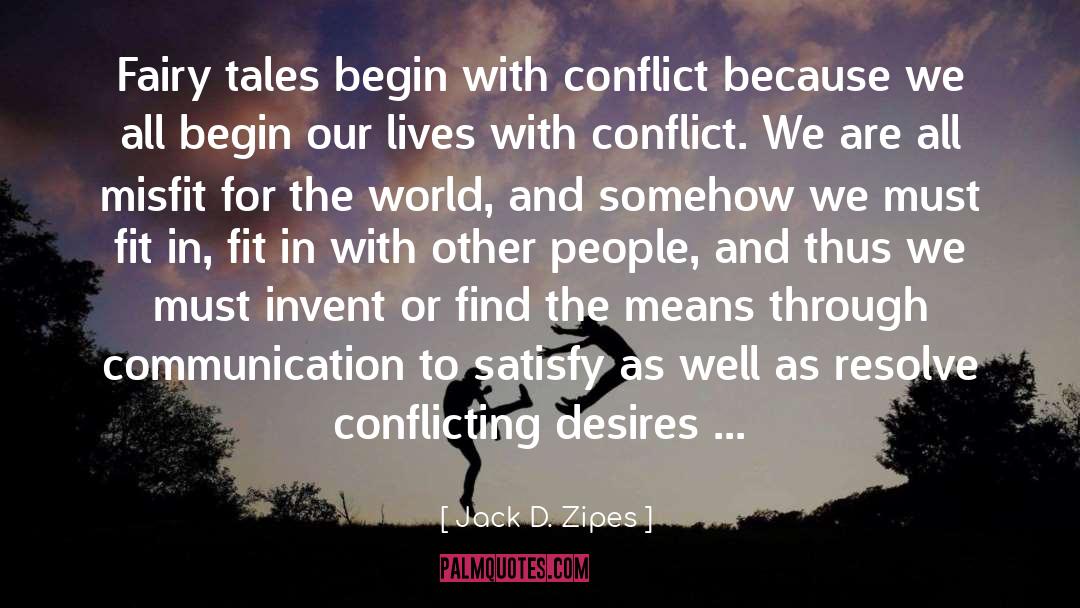
The literary fairy tale became an acceptable social symbolic form through which conventionalized motifs, characters, and plots were selected, composed, arranged, and rearranged to comment on the civilizing process and to keep alive the possibility of miraculous change and a sense of wonderment.
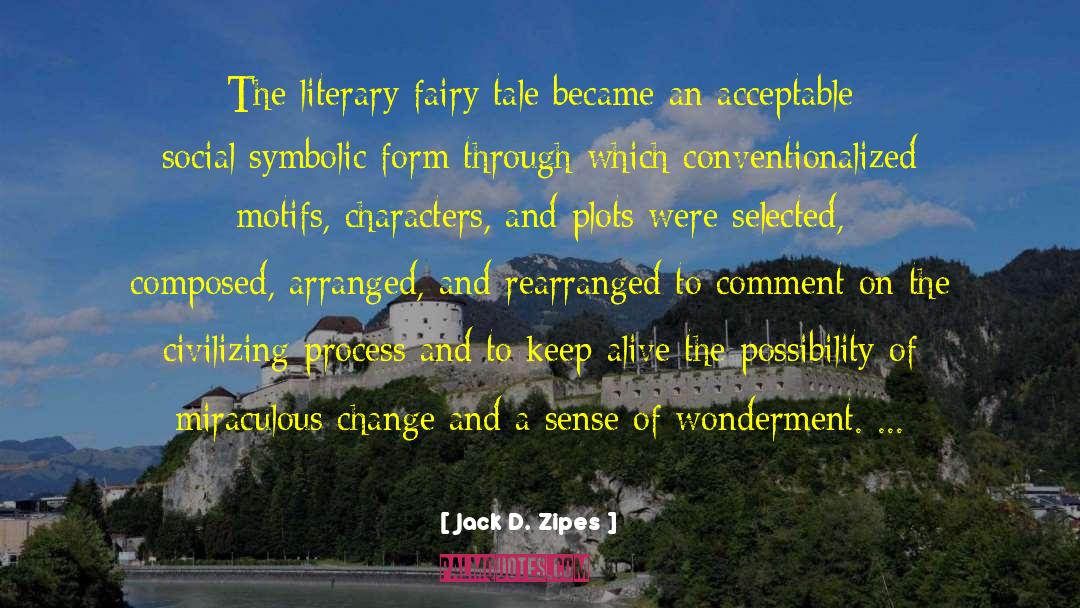
Ultimately, the definition of both the wonder tale and the fairy tale, which derives from it, depends on the manner in which a narrator/author arranges known functions of a tale aesthetically and ideologically to induce wonder and then transmits the tale as a whole according to customary usage of a society in a given historical period. The first stage for the literary fairy tale involved a kind of class and perhaps even gender appropriation. The voices of the nonliterate tellers were submerged, and since women in most cases were not allowed to be scribes, the tales were scripted according to male dictates or fantasies, even though they may have been told by women. Put crudely, it could be said that the literary appropriation of the oral wonder tales served the hegemonic interests of males within the upper classes of particular communities and societies, and to a great extent this is true. However, such a statement must be qualified, for the writing down of the tales also preserved a great deal of the value system of those deprived of power. And the more the literary fairy tale was cultivated and developed, the more it became individualized and varied by intellectuals and artists, who often sympathized with those society marginalized or were marginalized themselves. The literary fairy tale allowed for new possibilities of subversion in the written word and in print, and therefore it was always looked upon with misgivings by the governing authorities in the civilization process

Over the last three centuries our historical reception of folk and fairy tales has been so negatively twisted by aesthetic norms, educational standards and market conditions that we can no longer distinguish folk tales from fairy tales nor recognize that the impact of these narratives stems from their imaginative grasp and symbolic depiction of social realities. Folk and fairy tales are generally confused with one another and taken as make-believe stories with no direct reference to a particular community or historical tradition. Their own specific ideology and aesthetics are rarely seen in the light of a diachronic historical development which has great bearing on our cultural self-understanding.
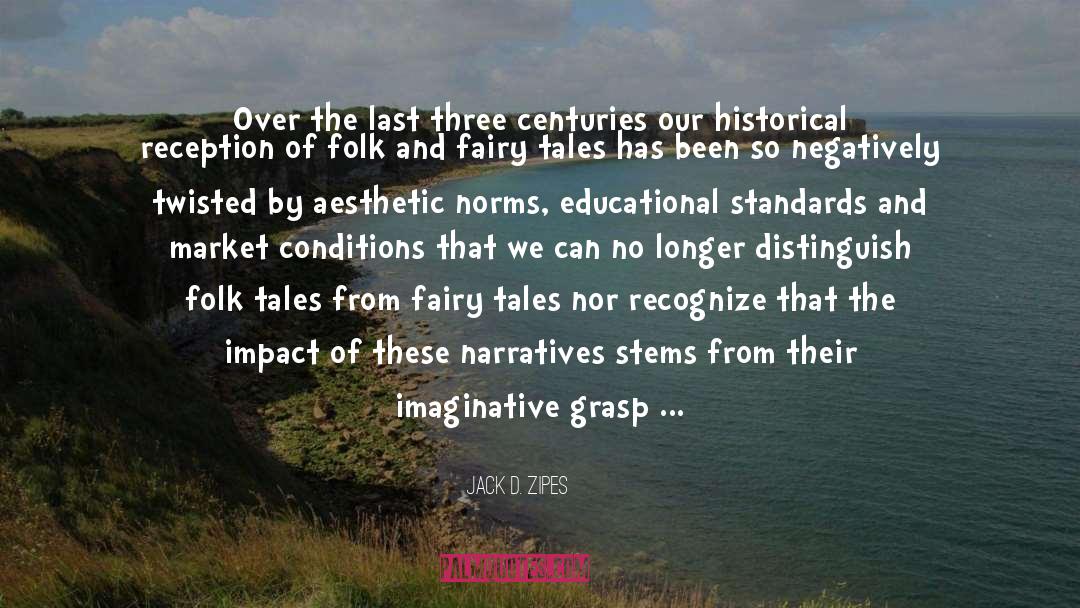
Many bowdlerized versions indicated a Victorian-minded censorship, which feared that Little Red Riding Hood might some day break out, become a Bohemian, and live in the woods with the wolf.
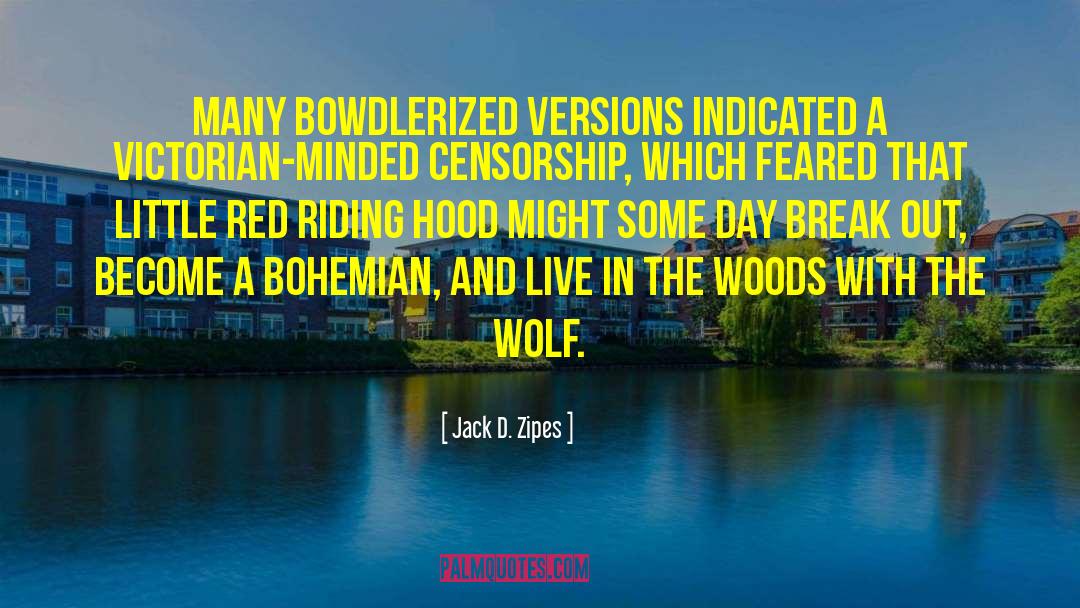
Everything beautiful is golden and strewn with pearls. Even golden people live here. But misfortune is a dark power, a monstrous, cannibalistic giant, who is, however, vanquished, because a good woman, who happily knows how to avert disaster, stands ready to help.

Inevitably they find their way into the forest. It is there that they lose and find themselves. It is there that they gain a sense of what is to be done. The forest is always large, immense, great and mysterious. No one ever gains power over the forest, but the forest posses the power to change lives and alter destinies.
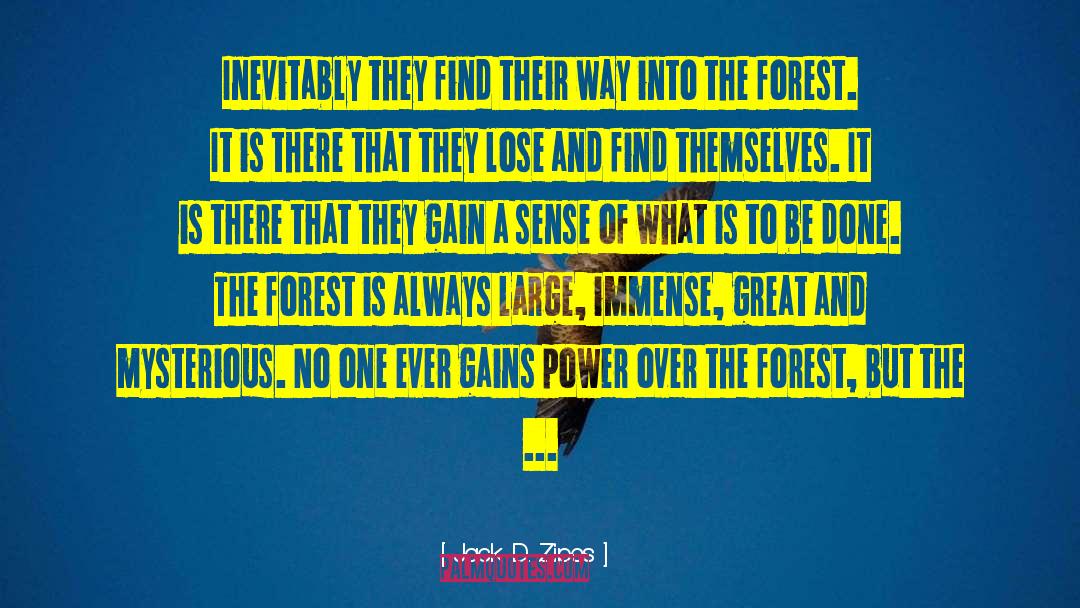
If there is one 'constant' in the structure and theme of the wonder tale, it is transformation.
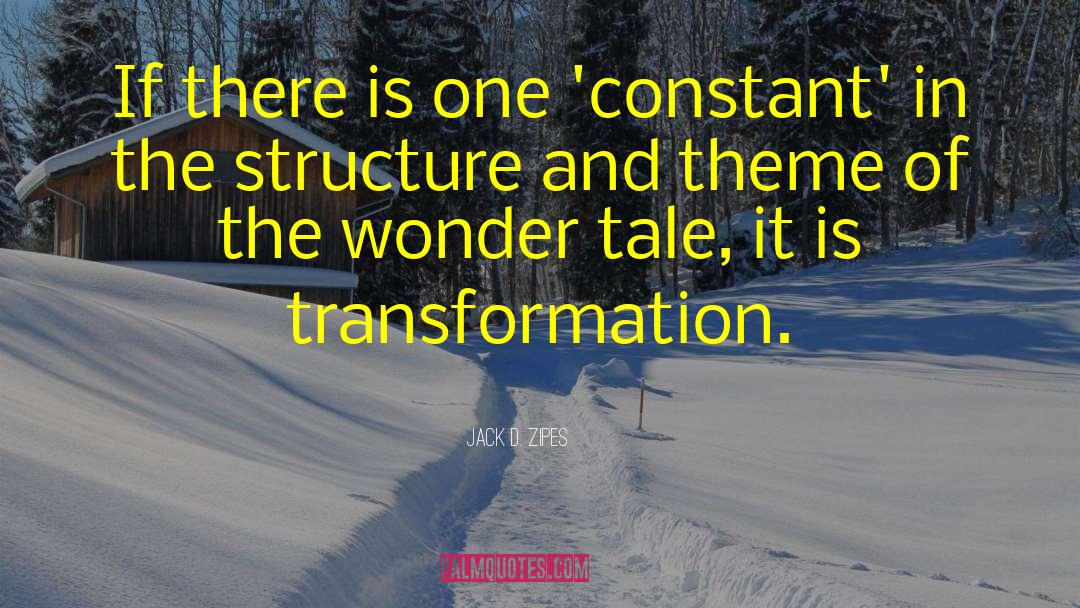
Since these wonder tales have been with us for thousands of years and have undergone so many different changes in the oral tradition, it is difficult to determine the ideological intention of the narrator, and when we disregard the narrator's intention, it is often difficult to reconstruct (and/or deconstruct) the ideological meaning of a tale. In the last analysis, even if we cannot establish whether a wonder tale is ideologically conservative, sexist, progressive, emancipatory, etc., it is the celebration of wonder that constitutes its major appeal. No matter what the plot may be, this type of tale calls forth our capacity as readers and potential transmitters of its signs and meanings to wonder. We do not want to know the exact resolution, the "happily ever after," of a tale - that is, what it is actually like. We do not want to name God, gods, goddesses, or fairies, who will forever remain mysterious and omnipotent. We do not want to form graven images. We do not want utopia designated for us. We want to remain curious, startled, provoked, mystified, and uplifted. We want to glare, gaze, gawk, behold, and stare. We want to be given opportunities to change, and ultimately we want to be told that we can become kings and queens, or lords of our own destinies. We remember wonder tales and fairy tales to keep our sense of wonderment alive and to nurture our hope that we can seize possibilities and opportunities to transform ourselves and our worlds.
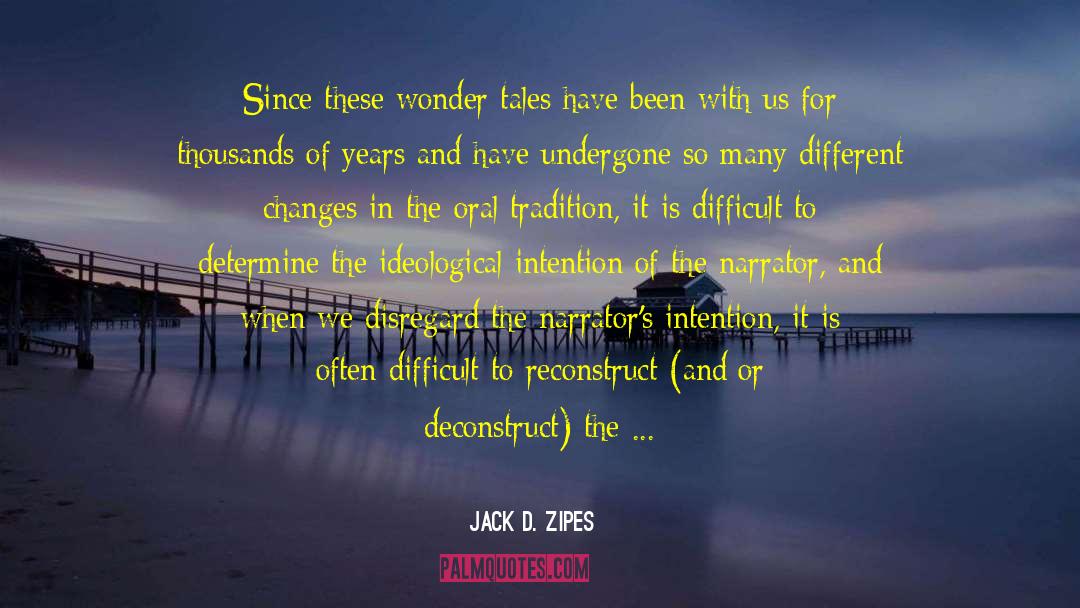
Every day affords individual people moments when they can shake off everything that is false and can view things from their perspective.

It was only as part of the civilizing process that storytelling developed within the aristocratic and bourgeois homes, in the seventeenth and eighteenth centuries through governesses and nannies, and later in the eighteenth and the nineteenth centuries through mothers, who told bedtime stories.
